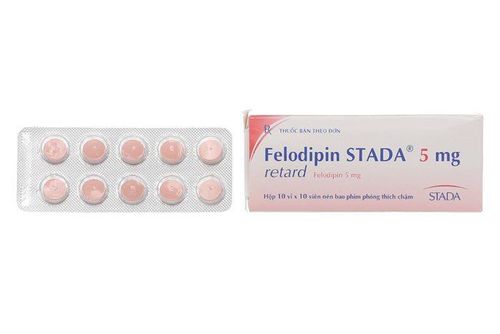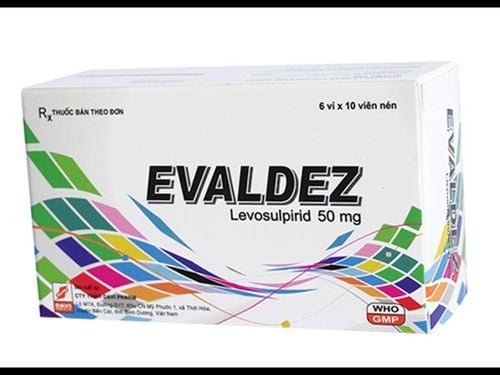This is an automatically translated article.
The article was professionally consulted by Specialist Doctor I Bui Thi Ha - Doctor of Pediatrics - Neonatology - Department of Pediatrics - Neonatology - Vinmec Ha Long International General Hospital.Heartburn is common in adults, especially after eating a full or spicy food. However, infants and children can also have symptoms of burning in the chest. According to some studies, about 2% of children 3 to 9 years old and 5% of children aged 10 to 17 years have heartburn. Symptoms can even begin in infancy.
1. What causes heartburn in babies and children?
Heartburn in children and infants is a sign of acid reflux (also known as gastroesophageal reflux and GER for short). This condition occurs when stomach acid backs up into the esophagus, which is a tube connecting the mouth and stomach. Normally, the lower esophageal sphincter will keep stomach acid from backing up into the esophagus, but if this muscle relaxes too much, it leads to a mismatch between the opening and closing of the lower esophageal sphincter and contraction. of the stomach, allowing stomach acids to back up and irritate the lining of the esophagus. As a result, it leads to heartburn and other symptoms.Gastroesophageal reflux disease (Gastroesophageal reflux and abbreviated: GERD), also a more serious form of GER, affects just over 1% of infants. The child is drooling more than usual and happens often, the child feels uncomfortable when having heartburn, fussing during feeding.
In young children, heartburn is usually caused by an underdeveloped digestive tract. In older children, risk factors include being overweight, being exposed to secondhand smoke, and eating certain foods (eg, spicy foods).

Phần lớn trẻ bị ợ nóng do đường tiêu hóa chưa phát triển đầy đủ
2. Symptoms
If the cause of heartburn is gastroesophageal reflux disease, an infant or young child may also experience other symptoms, such as:Baby hunched over during feeding Chest pain Coughing Hoarse voice Swallowing pain Poor eating Sore throat Vomiting Wheezing These symptoms can be seen in many different conditions, so may not necessarily be a sign of GER or GERD.
In addition to discomfort, babies with heartburn may not gain weight for their age. Sores can form in the esophagus due to persistent acid reflux, so if left untreated, GERD can lead to narrowing of the esophagus or abnormal cells in the lining of the esophagus, problems. respiratory and feeding problems.

Khi bị ợ hơi, trẻ sẽ có dấu hiệu nôn nhiều
3. Diagnosis
Because symptoms can be difficult for children and infants to express, doctors also have difficulty making a diagnosis.If your child has any symptoms of heartburn or GERD, parents should take the child to see a pediatrician who specializes in gastroenterology. The doctor will examine the child and ask the parents how the child's symptoms are at home. Tests for heartburn caused by GERD include:
Upper GI X-ray (Upper GI series). After your child drinks a solution containing a contrast material (barium), the technician will then use X-rays to take pictures of the esophagus, stomach, and part of the intestines. Endoscopic . In this technique, the child will be anesthetized so that the doctor inserts an endoscope with a camera through the mouth into the esophagus and stomach. This device allows the doctor to directly view the upper digestive tract and take tissue samples for biopsy. Monitor esophageal pH. In this technique, the doctor inserts a thin, flexible tube from the child's nose into the esophagus to check the acid levels in the esophagus. Gastric emptying study. After the baby drinks milk containing a special radioactive substance, the doctor conducts a stomach scan to monitor how the food moves through the stomach.
4. Treatment
Treatment will depend on the child's age and the cause of the heartburn. Although some heartburn symptoms improve on their own by the first birthday, others are more difficult to treat. Studies around the world have looked at a number of home remedies for heartburn relief, but most have been ineffective: infants sleeping in an upright position, drinking thicker milk, using pacifiers, and so on. Keep your baby upright for about 30 minutes after feeding.Medication is an effective treatment for heartburn, but should not be considered a first-line treatment. Medications for heartburn include:
H2 antihistamines (Tagamet, Zantac, Pepcid) Proton pump inhibitors (such as Dexilant, Nexium, Prevacid, and Prilosec) Both of these medications reduce the amount of stomach acid, by that has less acid to back up into the esophagus.
You can also try these methods to help relieve frequent heartburn in children:
Eat small meals instead of three large meals a day. Let the child finish eating before two or three hours before going to bed. Do not give your child caffeine and spicy, fried or acidic foods. Foods to avoid if your child has frequent heartburn include chocolate, caffeinated sodas, mints, oranges and other citrus fruits, and tomatoes. Raise the head of the child's bed 15 to 20 cm by placing wooden blocks at the foot of the bed. If the above measures are still not relieved, the child should use medicine. In rarer cases, a child may need surgery by fundoplication. In this technique, the doctor removes the upper part of the stomach and wraps the area around the lower esophageal sphincter, creating a band that stops stomach acid from running up the esophagus.
Heartburn, although not dangerous, is the cause of the baby not gaining weight, having problems with eating, breathing, damage to the esophagus. If this situation lasts for a long time, it will seriously affect the psyche of the baby, causing fear for the baby. When applying the above treatment methods but the condition is still not improving, you should take your baby to see a specialist doctor for early examination and treatment advice.
Children need to provide enough elemental zinc/day for them to eat well, reach the correct height and weight and exceed the standard. Zinc plays a role in affecting most biological processes taking place in the body, especially the breakdown of nucleic acids, proteins... Organs in the body when zinc deficiency can lead to a There are a number of diseases such as neurological disorders, irritability, etc. Therefore, parents need to learn about the role of zinc and guide them to appropriate zinc supplementation for their children.
In addition to zinc, parents also need to supplement their children with other important vitamins and minerals such as lysine, chromium, B vitamins,... errands.
Please regularly visit the website Vinmec.com and update useful information to take care of your baby and family.
Article referenced source: Webmd.com














